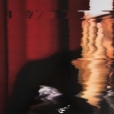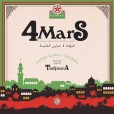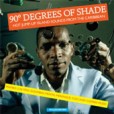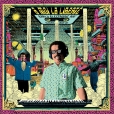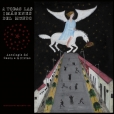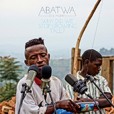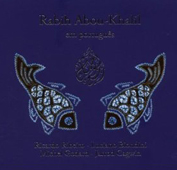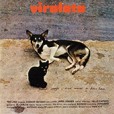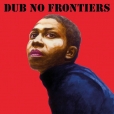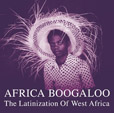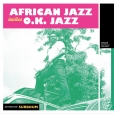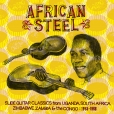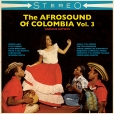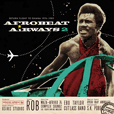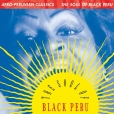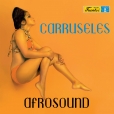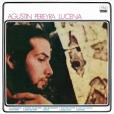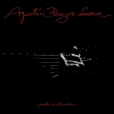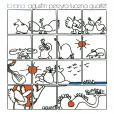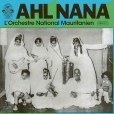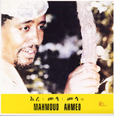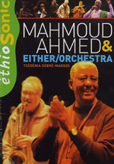Your basket is empty

‘A retrospective of the forty-member Somali supergroup featured on Sweet As Broken Dates. Turkish synths, Jamaican Reggae, American brass, Bollywood vocals, Egyptian and Yemeni rhythms, and Chinese and Mongolian flutes all rendezvous in a corner of East Africa that for centuries served as the world’s most brisk trading hub, the midway point connecting Africa, Asia, and the Mediterranean. This is Somali music at its sassy, soulful, synthesized best. The LP comes with a poster inspired by the political banners of 1980s Djibouti; the CD in a hard cover, with a 12-page booklet.’
Impatiently returning to the golden age of Ecuadorian musica national, this second round of retrievals is more of a selectors’ affair: less reverent, more free-flowing, with more twists and turns. There is no let-up in the quality of the music, maintaining the same judicious, heart-piercing balance between emotional desolation and dignified endurance, the same bitter-sweet play between affective excess and formal sublimity.
This time around, the woman steal the show. Laura and Mercedes Suasti were child stars, with an exclusive Radio Quito contract. Unlike nearly all the men here, they lived long and prospered: Mercedes died last year, at the age of 93. Gladys Viera and Olga Gutierrez both came to Ecuador from Argentina. To start, Gladys plugged the scandalous new Monokini swimwear; Olga performed for visiting British royalty in 1962. Olga was glamorous but tough. She would make little of the amputation of one of her legs: ‘I don’t sing with my leg.’ She is accompanied on our opener by quintessentially reeling, sultry musica national: haunted-house organ, twinkling xylophone, Guillermo Rodriguez’ heart-plucking guitar-playing, and lilting, dance-to-keep-from-crying double-bass. ‘Sometimes I think that you will leave me with no memories,’ she sings, ‘that you hold only disappointments in store for me… In the future your love will search me out, full of regret. By then it will be too late, there will be no consolation, only disappointment awaiting you.’
Other highlights include the two contributions of Orquesta Nacional: Ponchito Al Hombro, like an off-the-wall forerunner of the Love Unlimited Orchestra, beamed into the tropics from an unknowable time and space; and the tone poem Atahualpa, a mystical yumbo invoking Quito’s most ancient inhabitants, the Kichwa. Also the tremulous, gypsy-flavoured violin-playing of Raul Emiliani, who arrived in Quito from Italy, suffering PTSD from the Second World War; the inscrutable, sardonic experimentalism of organist Lucho Munoz; and the mooing and whistling of Toro Barroso — cow-thief school of Lee Perry — in which a muddy bull dashes home to his darling chola, fearless, full of desire.
Lavishly presented, with a full-size, full-colour booklet, with transporting art-work and expert notes. Luminous sound, by way of Abbey Road, D&M and Pallas.
Truly spell-binding music.
‘The sacred music of peasants in Chile’s remote Central Valley: a communal form of worship and reflection, played in packed rooms throughout the night when work is done. The Canto has persisted for centuries in the voices of hundreds of men and women who conjure vivid visions of apocalypse, the divine, and angelitos (very young children who have died). But the verses are also rooted in the daily life in the valley — labour and drought, family, animals, and the life cycles of plants. To hypnotic accompaniment by guitar and the celestial, 25-string guitarron, countless entonaciones or melodies range across the 10-line rhyming decimas, in an ancient song form originating in Spain and found from South America to the Mississippi Delta. The combination is entrancing and transporting, cosmic and earthly at once.
‘The handsome gatefold jacket presents the visionary, apocalyptic art of Frederico Lohse, a baker from the village of Los Vilos, who painted on old flour sacks; with an eight-page booklet containing lyrics, photos, and extensive notes about the Canto tradition.’
Originally released in 1979 — ‘a product of my hybrid musical influences that joins together flavours of marchinhas de carnaval, frevo, toada, classical, baião, mpb and jazz,’ says Antonio.
The opener Cascavel is a gold-plated London jazz-dance classic; and the last-ever record spun at Plastic People.
Rocking the party and ramming the dancefloor is the first priority of this review of Latin styles in classic West African dance music, as it emerged with 1950s anti-colonialism, and ran on gloriously into the 70s.
Ghanaian highlife bombs: giants like K. Frimpong, African Brother Nana Ampedu, Gyedu-Blay Ambolley (with The Complex Sounds); unfamiliar names like Los Issufu and his Moslems, Waza Afrika, Funky Afrosibi.
The dazzling 1970 debut of this Argentinian guitarist, featuring several of his own mystically beautiful bossa and samba jazz compositions, besides sensational versions of songs by Baden Powell, Vinicius De Moraes, and A.C. Jobim.
The first-ever vinyl reissue of this ravishingly beautiful private press album from 1988; Agustín’s most sought-after LP.
‘By now, Agustín had established himself as one of Argentina’s foremost interpreters of Brazilian music. The seventies brought success with his group Candeias, and recognition in Brazil, where he formed friendships and collaborations with luminaries such as Vinicius de Moraes, Baden Powell, Dorival Caymmi, Toquinho, and Maria Bethania. Following the era of dictatorship in South America, Agustín spent the late seventies and early eighties living and touring in Norway, during European travels with his quartet.
‘Recorded after returning to his native Buenos Aires — and featuring a team of crack Argentinian musicians, including drummer Osvaldo Avena, flautist Rubén Izarrualde, and saxophonist Bernardo Baraj — Puertos de Alternativa emerged from this confluence of diverse experiences, contexts, and influences. It begins rooted deeply in South American soil, drawing clear inspiration from Brazilian guitar masters like Heitor Villa Lobos, Garoto, and Baden Powell. But a sense of journey unfolds, evoking new landscapes and horizons — from the crystalline beauty of glacial Norway to the gentle currents of the Rio de la Plata.’
The great man meeting up with the American big-band, the Either/Orchestra — rehearsals, interviews, and finally a joint performance at the 2006 Banlieues Bleues Festival.

